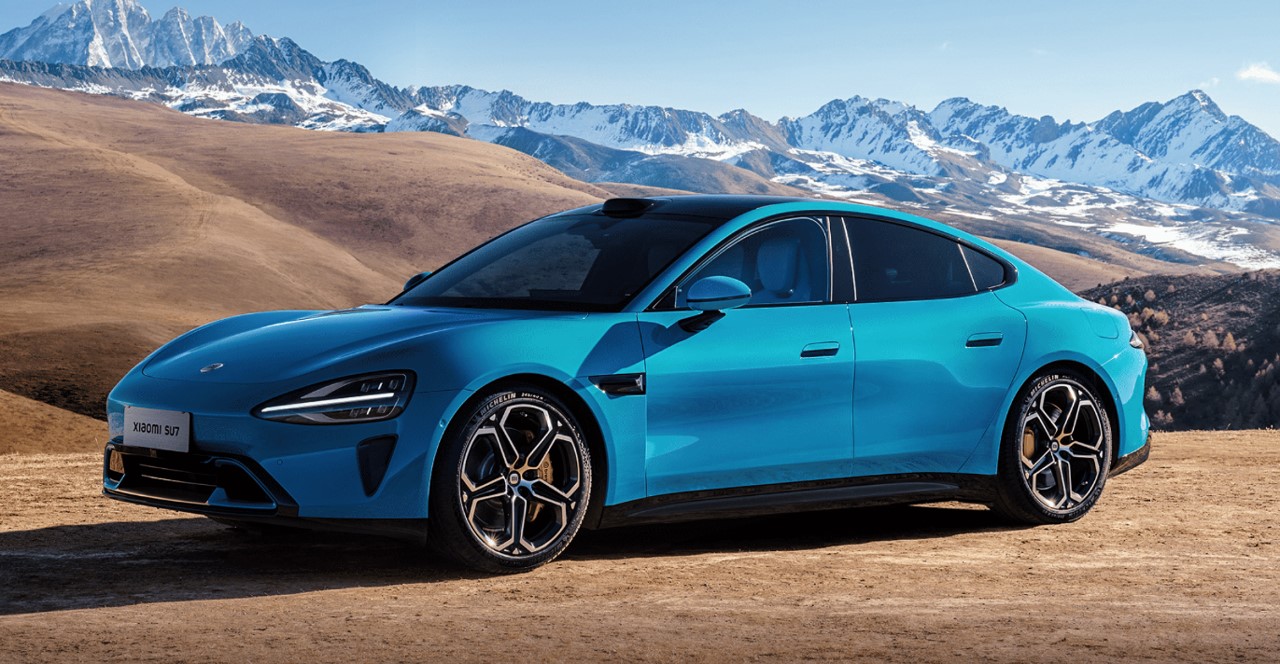Xiaomi Group announced that its third-quarter revenue reached 92.51 billion yuan, a year-on-year increase of 30.5%; the adjusted net profit was 6.3 billion yuan, a year-on-year increase of 4.4%. Xiaomi Group's free capital stood at a new historical high at 151.6 billion yuan, setting a new historical high as of the end of September 2024. Among these:
Revenue from innovative businesses such as Xiaomi's smart electric vehicles was 9.7 billion yuan. The Xiaomi SU7 has achieved a delivery target of 100,000 units and is striving for a full-year delivery of 130,000 units. After the launch of the mass-produced sports car
SU7 Ultra on October 29, orders exceeded 3,680 units within 10 minutes. In terms of intelligent driving, its intelligent driving system is expected to start pushing the pioneer version by the end of December.
Revenue from Xiaomi smartphones and lifestyle consumer products were 47.5 billion yuan and 26.1 billion yuan respectively, with each year-on-year increase of 13.9% and 26.3%.
In Q3, Xiaomi's R&D investment was 6 billion yuan, a year-on-year increase of 19.9%, with R&D investment maintaining double-digit growth for several consecutive quarters. The total number of R&D personnel reached 20,436, and the global patent count exceeded 41,000 pieces. Notably, in 2024, Xiaomi's global ranking in terms of 5G standard-essential patent declarations rose to 8th place globally.
However, in terms of profit, Xiaomi's automotive business is still in the loss, with an adjusted net loss of 1.5 billion yuan for innovative businesses such as smart electric vehicles in the third quarter, with an average loss of 37,698 yuan per vehicle.
Considering that Xiaomi has just entered the electric vehicle race, it is normal not to be profitable in the short term. The growth of other businesses such as Xiaomi's smartphones can provide a substantial cash flow for the automotive business, allowing Xiaomi's cars to "afford to lose." Moreover, Xiaomi's advantage lies in the fact that cars "draw customers," while smartphones "make money," creating a synergistic and mutually supportive relationship between the automotive and smartphone electronic product businesses, achieving organic growth, and allowing for comprehensive competition with competitors in terms of ecosystem, brand, R&D, channels, and capital. Lu Weibing, President of Xiaomi Group, stated during a performance call, "Xiaomi's cars have made a very positive contribution to our brand building. Xiaomi's smartphone business has seen significant growth globally, especially in the Chinese market this year, with the competitiveness of Xiaomi smartphones continuously improving, which has further strengthened Xiaomi's brand influence. In addition to the brand, Xiaomi's cars also have drawn data traffic and cost-reducing effects on other products."
Additionally, industry statistics show that the unit price of Xiaomi's cars is also increasing, which will help to quickly improve the profitability of Xiaomi's cars in the future. In the second quarter of this year, Xiaomi delivered 27,307 vehicles, with automotive business revenue of 6.4 billion yuan, including 6.2 billion from car sales and 200 million from other income, with an average unit price of about 227,000 yuan. In the third quarter, Xiaomi delivered 39,790 vehicles, with automotive business revenue of 9.7 billion yuan, a sequential growth of 52.3%, including 9.5 billion from car sales and 200 million from other related businesses, with an average unit price reaching 238,800 yuan, nearly 11,000 yuan higher than the previous quarter.
Lu Weibing stated that the increase in average selling price is related to the product mix, with different versions of products contributing different frequencies. The high proportion of sales of high-specification models is an important reason for the increase in the average price of Xiaomi's cars. Xiaomi's first model, the Xiaomi SU7, is currently on sale in three versions: Standard, PRO, and MAX, priced at 215,900 yuan, 245,900 yuan, and 299,900 yuan, respectively. The increase in the proportion of consumers choosing the high-specification PRO and Max versions of the Xiaomi SU7 has also correspondingly increased the average selling price of Xiaomi's cars. The Xiaomi SU7 Ultra, which has begun pre-sale at a pre-sale price of 814,900 yuan, will be officially released in March 2025, and with the launch of new products, the average selling price will continue to rise. Furthermore, in the third quarter of this year, the gross margin of Xiaomi's automotive business has increased to 17.1%, up 1.7 percentage points from the previous quarter. With more consumers choosing high-specification versions and the delivery of the Ultra model, the gross margin of Xiaomi's cars will continue to rise.
In the field of intelligent driving, Xiaomi is also striving to catch up with leading automakers such as Tesla, Li Auto, and Huawei. A day before the Guangzhou Auto Show, Lei Jun live-streamed a "parking space to parking space" test of Xiaomi HAD and stated that Xiaomi's intelligent driving system has caught up three generations in half a year.

In October of this year, Xiaomi pushed the NOA without maps for cities nationwide on all its cars, becoming the 4th self-developed car manufacturer to achieve this in the industry. The upcoming pioneer version of "parking space to parking space" intelligent driving technology solution to be released in December by Xiaomi has seen further functional improvements. Xiaomi will be "the second domestic company to achieve parking space to parking space + end-to-end + VLM visual language large model, thereby realizing end-to-end full-scenario intelligent driving." The increasing number of consumers choosing PRO and MAX versions also reflects the growing recognition of Xiaomi's intelligent driving.







